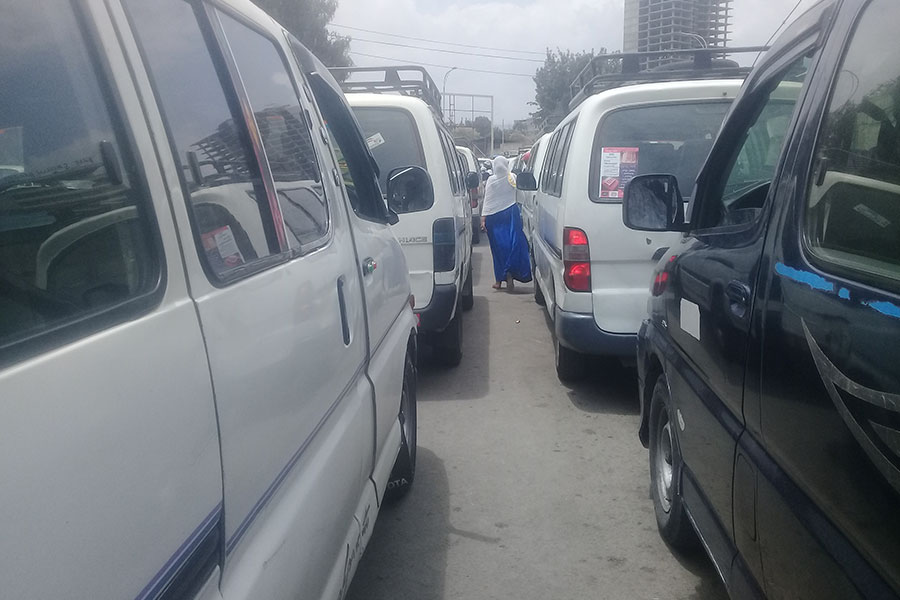
A shareholders assembly called to vote on the destiny of Hiber Sugar S.C. brought more dispute than resolution when it was concluded.
It was the second gathering in three months, held as the company continues to grasp at straws following a failure to realise its initial plans of producing sugar from a plant and estate the Amhara Regional State granted to Hiber. It was a proposition never taken off the ground, despite huge investment. Hiber Sugar had spent over 55.8 million Br in its futile attempt to develop a private sugar estate on a 6,183ht plot of land before authorities in the regional state leased the land to other prospective developers.
The embattled company of 5,500 shareholders had a few hundred of its shareholders meet two weeks ago at the campus of Hope University College in the Jemo area. They were to decide whether to dissolve the 12-year old company or change its line of business. However, the assembly ended with confusion. Shareholders bemoaned the two options put to the table by the company's board of directors, asking them to consider selling their shares or stick to the company while shifting the line of business.
Frustrated, shareholders demanded to be provided with the option to vote for dissolution to regain the 81.1 million Br equity raised to incorporate the company. The directors relented, adding the option of dissolution, but even so, the assembly ended in disarray as shareholders and the Board could not agree on the results. The outcome of the vote was unclear as most shareholders present voted both against dissolution and for liquidating their stakes in the company but could not agree on how they would sell their shares.
Close to 226 shareholders have sold their stakes in the company, choosing to opt-out after seeing no return on their investment in Hiber Sugar for over a decade.
"I'd prefer to get my money back, but since it doesn't have the same value as before," said Tigist Alene, a shareholder who attended the assembly two weeks ago, "changing the line of business would be a better move."
It appears that shareholders did not want the company to dissolve, though they wanted to sell their shares, said a person who is close to the matter.
Three-fourths of shareholders must vote in favour of dissolution for the resolution to be legally binding, according to Yehualashet Tamiru, a lawyer.
"Alternatively, as few as five percent of shareholders can appeal to a judge for dissolution," said Yehualashet.
What will transpire in this continuing saga of Hiber Sugar remains unclear.
Yirga Gabre, the board chairperson, has plans to take the matter to the Ministry of Trade & Industry and the Document Authentication & Registration Agency (DARA). He thinks of sharing the findings with shareholders through text messaging, he told Fortune.
"Shareholders want to get explanations as the legal implication of their vote is not clear," Yirga said.
Hiber and the Rural Land Administration & Use Bureau in the Amhara Regional State have been locked in a perpetual dispute for the last five years over the plot of land the company had been granted to develop a sugar estate in Awi Zone and South Achefer of West Gojjam Zone. The Bureau revoked Hiber's lease right after the company failed to show progress on the venture. Hiber Sugar's appeals to the regional and federal governments failed to get responses, and the company's board and shareholders have been forced to rethink their business model.
Moving onto tourism, real estate, or banking were some of the industries Hiber Sugar board of directors were considering. Hiber's net total assets stood at 16.1 million Br last year. The Board had also tinkered with the idea of investing in avocado oil and rice production following the general assembly held in late April 2021.
"It would be better to buy shares at a bank," said a shareholder present at the assembly.
The company has invested 1.05 million Br buying shares in Amhara Bank, which is under formation with a paid-up capital of almost six billion Birr.
If the company survives the vote, the Board will conduct a feasibility study to determine the best course forward, according to Yirga.
PUBLISHED ON
Jul 18,2021 [ VOL
22 , NO
1107]

Viewpoints | Sep 28,2024

Radar | Jul 27,2025

Fortune News | Aug 26,2023

Viewpoints | Aug 27,2022

Radar | May 07,2022

Dec 22 , 2024 . By TIZITA SHEWAFERAW
Charged with transforming colossal state-owned enterprises into modern and competitiv...

Aug 18 , 2024 . By AKSAH ITALO
Although predictable Yonas Zerihun's job in the ride-hailing service is not immune to...

Jul 28 , 2024 . By TIZITA SHEWAFERAW
Unhabitual, perhaps too many, Samuel Gebreyohannes, 38, used to occasionally enjoy a couple of beers at breakfast. However, he recently swit...

Jul 13 , 2024 . By AKSAH ITALO
Investors who rely on tractors, trucks, and field vehicles for commuting, transporting commodities, and f...

Oct 4 , 2025
Eyob Tekalegn (PhD) had been in the Governor's chair for only weeks when, on Septembe...

Sep 27 , 2025
Four years into an experiment with “shock therapy” in education, the national moo...

Sep 20 , 2025
Getachew Reda's return to the national stage was always going to stir attention. Once...

Sep 13 , 2025
At its launch in Nairobi two years ago, the Africa Climate Summit was billed as the f...